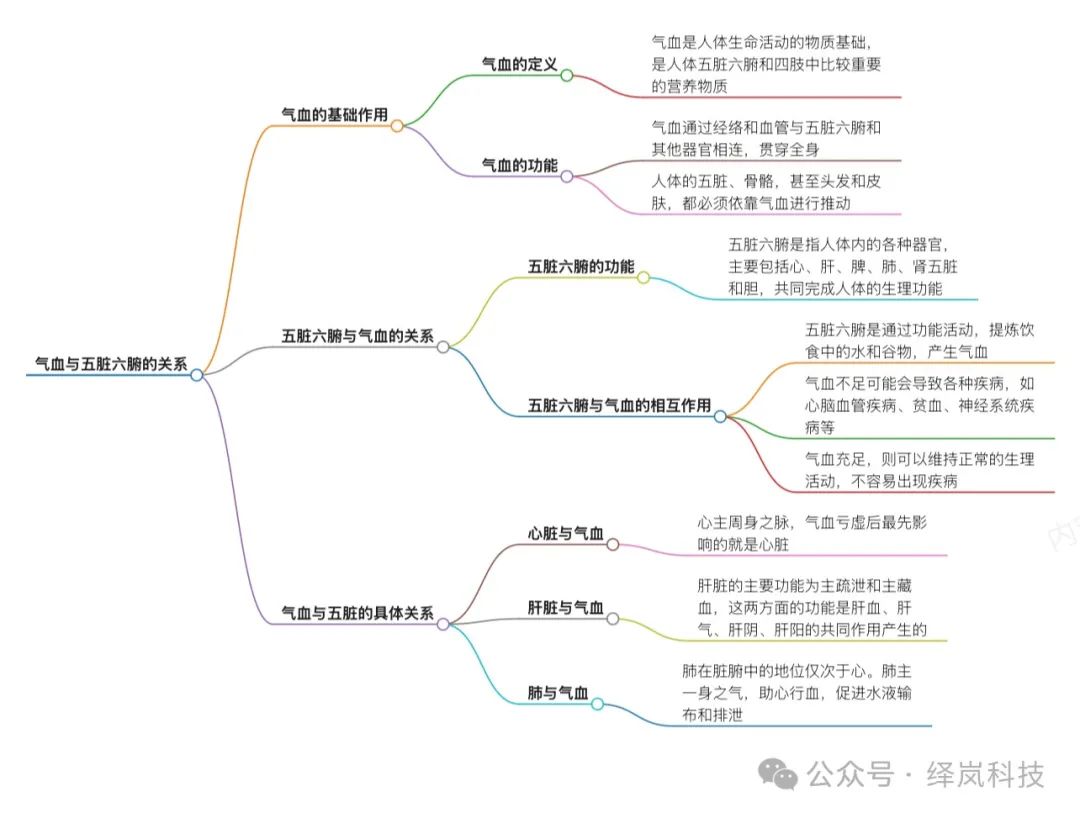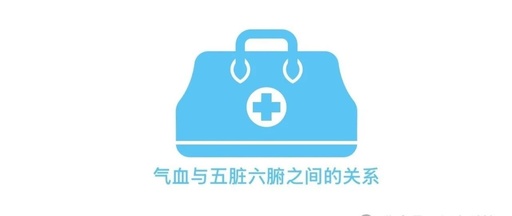
The relationship between Qi (气) and Blood (血) with the Five Zang Organs (五脏) and Six Fu Organs (六腑) is one of the core contents of Traditional Chinese Medicine (TCM) theory. They are interdependent and mutually influential, and the specific relationships can be divided into the following aspects:1. The Nourishing Role of Qi and Blood on the Five Zang and Six Fu Organs1. Qi and Blood are the material basis of life activities. Qi and Blood connect with all organs through the meridians (经络), permeating every tissue in the body. The Five Zang and Six Fu organs, as well as bones and hair, rely on the promotion and nourishment of Qi and Blood; without Qi and Blood, life activities cannot be sustained.2. The Functional Division of Qi and Blood: Qi: Promotes the circulation of Blood and maintains the functions of the organs (such as the lungs’ respiration and the spleen and stomach’s transformation). Blood: Serves as the carrier of Qi, giving Qi a specific form and nourishing the organ tissues. The relationship can be summarized as “Qi is the commander of Blood, and Blood is the mother of Qi.”2. The Generation and Regulation of Qi and Blood by the Five Zang and Six Fu Organs1. Heart and Blood: The heart governs the blood vessels, promoting the circulation of Blood throughout the body. When the heart is abundant in Qi and Blood, the complexion is rosy; insufficient heart Blood can lead to palpitations and insomnia.2. Lungs and Qi: The lungs govern the Qi of the body, generating Zong Qi (宗气) through respiration, participating in the circulation of Qi and Blood. Lung Qi deficiency can lead to shortness of breath and spontaneous sweating, affecting the distribution of Blood.3. Spleen and Stomach and the Transformation of Qi and Blood: The spleen and stomach are the “foundation of postnatal life,” transforming the essence of food and water into Qi and Blood. Spleen deficiency leads to insufficient Qi and Blood, manifesting as fatigue and poor digestion.4. Liver and the Regulation of Qi and Blood: The liver governs the smooth flow of Qi and regulates the circulation of Qi; it stores Blood, maintaining its storage and release. Liver Qi stagnation can lead to Qi stagnation and Blood stasis, causing chest and rib pain and menstrual irregularities.5. Kidneys and the Transformation of Essence and Blood: The kidneys store essence, which can transform into Blood. Insufficient kidney essence leads to Qi and Blood deficiency, manifesting as hair loss, tinnitus, and weakness in the lower back and knees.3. The Impact of Abnormal Qi and Blood on the Organs1. Qi and Blood Deficiency: The Five Zang organs become malnourished, leading to functional decline. For example: Heart: palpitations, forgetfulness; Liver: dry eyes, blurred vision; Kidneys: frequent urination, sensitivity to cold.2. Qi Stagnation or Blood Stasis: Qi stagnation or Blood stasis can lead to dysfunction of the organs, such as liver Qi stagnation causing breast hyperplasia, and lung Qi obstruction leading to cough and wheezing.4. Principles of TCM Regulation1. Simultaneous Treatment of Qi and Blood: Nourishing Qi and Blood should be done concurrently, such as using Huang Qi (黄芪) with Dang Gui (当归) in the Dang Gui Bu Xue Tang (当归补血汤).2. Coordinated Treatment of the Organs: For example, nourishing the kidneys and liver (using Gou Qi (枸杞) and Shu Di Huang (熟地黄)), and strengthening the spleen and benefiting Qi (using Bai Zhu (白术) and Shan Yao (山药)).3. Unblocking the Meridians: Promoting the circulation of Qi and Blood through acupuncture and massage, such as using Zu San Li (足三里) and Shan Zhong (膻中) points to regulate the spleen and stomach and heart and lungs.ConclusionThe dynamic balance between Qi, Blood, and the Five Zang and Six Fu organs: When the organ functions are normal, Qi and Blood generation has a source; when Qi and Blood are abundant, the organs are nourished. Any imbalance in either side will trigger a chain reaction, requiring holistic regulation to restore balance.

